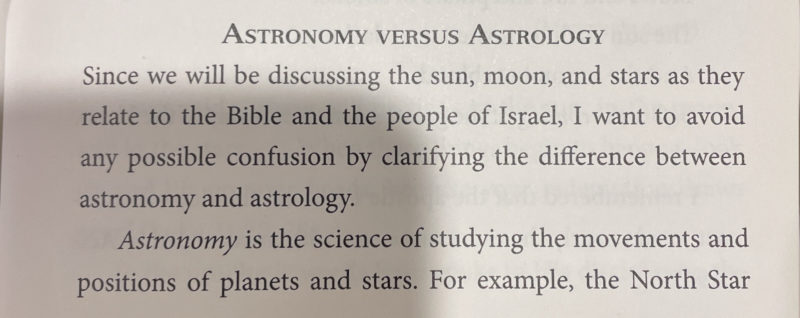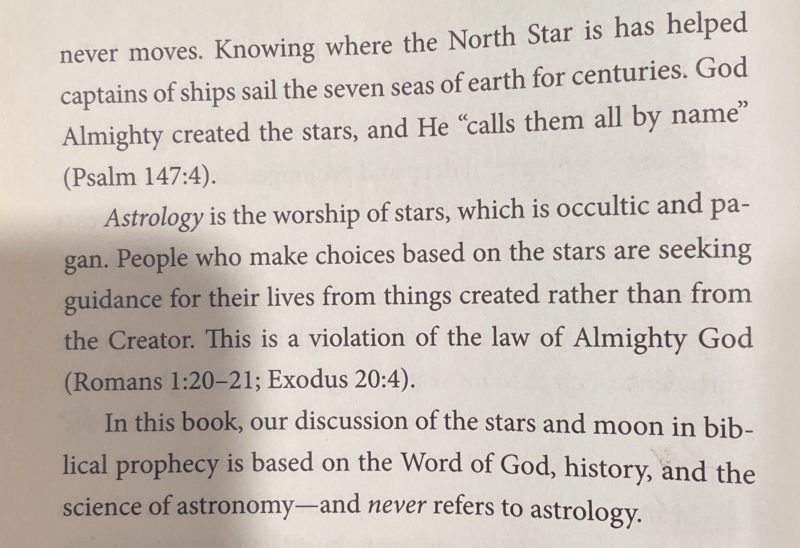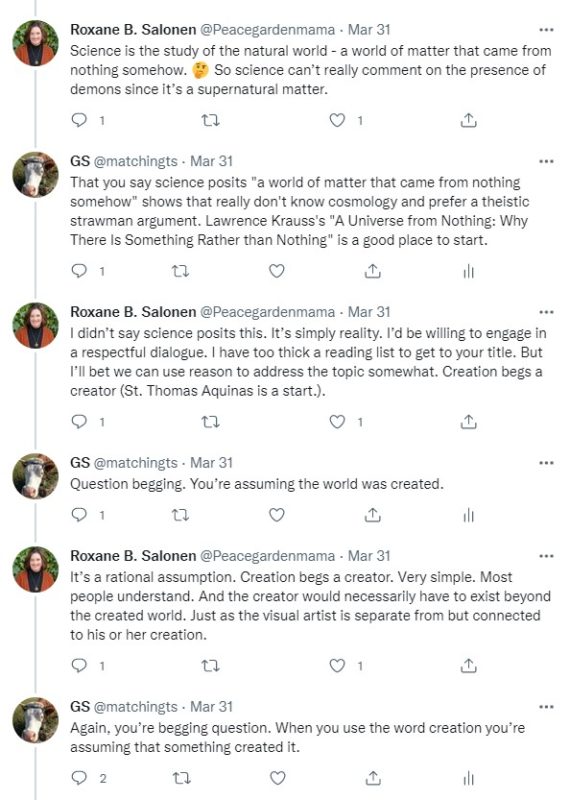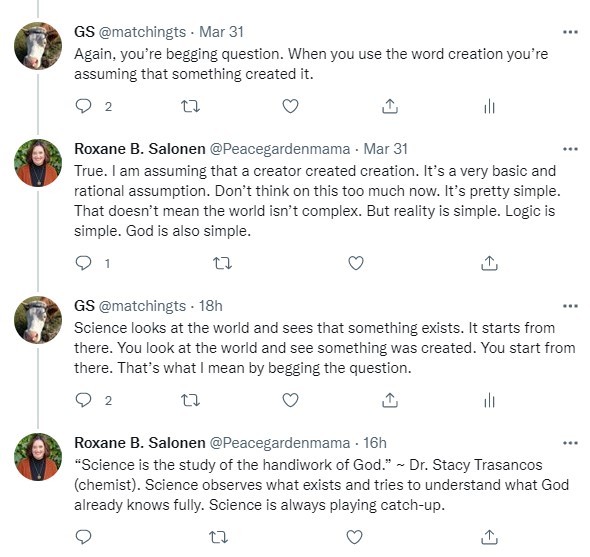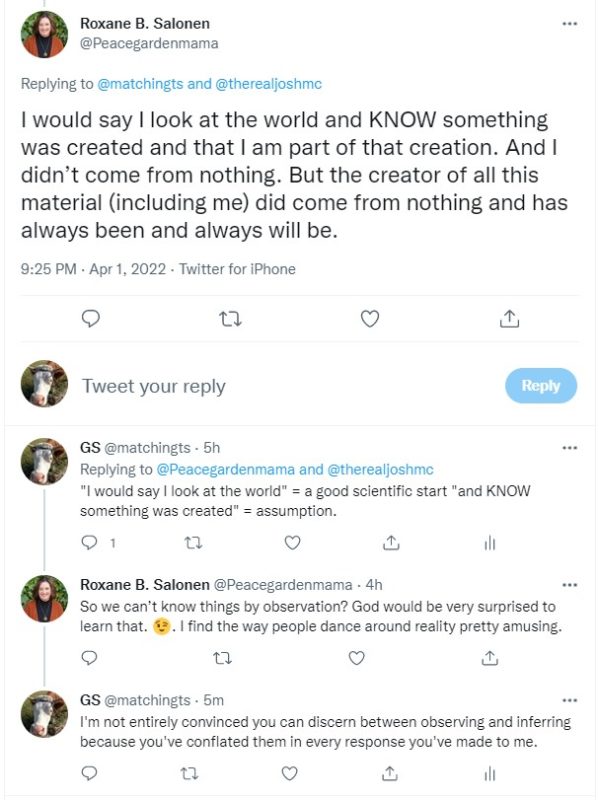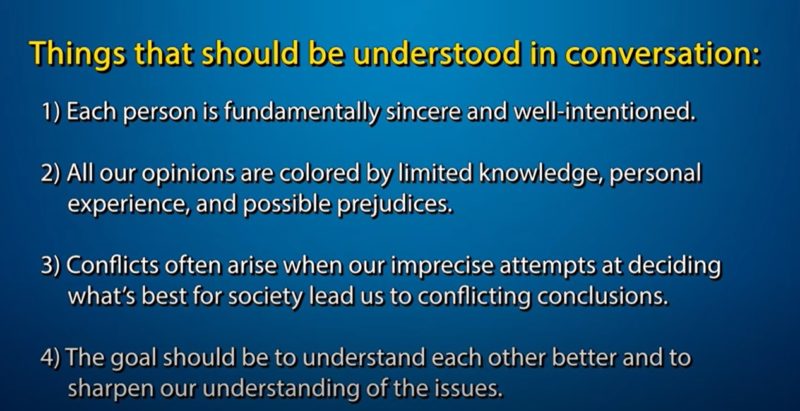I really don’t know why I do it. I follow some of these Catholic groups online for no good reason, I think. Am I there just to pick a fight? I guess.
Today, this one popped up as a joke.
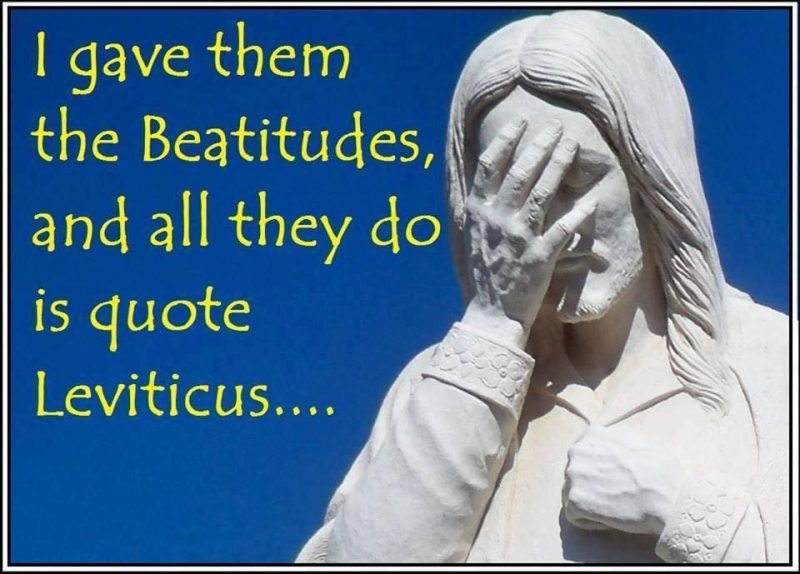
Everyone was laughing about it, so I guess humor is the new way of dealing with the awful things God commands in Leviticus. Of course, I replied: “But both come from God. Both are commands from God. That’s the problem.”
A user named Joseph responded, “no there is no problem. None of the levitical laws are valid anymore. Thus any command from Chirst is superior.”
People just don’t get it, though. Jesus might have done away with these laws, but because of the trinity doctrine, it was Jesus who created the commands in the first place. I responded to Joseph:
But the fact that they were commanded in the first place — that’s the problem I’m referring to. That God commanded his people to stone to death incorrigible children, stone homosexuals, stone people for breaking the sabbath — THAT is the problem. Whether or not he did away with those laws is not as troubling as the fact that he made them in the first place.
At this point, Jesse jumped in to help:
[I]f you listened to the first couple of episodes, Fr. Mike clarified it. Some laws were “allowed”, just as what Jesus said about the law on divorce. Also that some must be understood that they were given to a savage, nomadic, tent-living, and with frequent streaks of going astray kind of people who lived thousands of years ago.
I’ve heard this so many times I’m sick of it. No one sees the problem that the same god who gave us the kinder, gentler Jesus also gave us these commands in Leviticus! In fact, because of the trinity, it’s the same being! I tried to explain this:
No, that doesn’t fly. God didn’t allow those laws. He didn’t see them stoning people and say, “Well, I’ll let you do that for a while.” It was God who COMMANDED the stoning. Why does no one get that distinction?
There were a few more responses — I replied to them all. And then everyone just stopped responding to me. Questions are unwelcome, I guess, and even more so follow-up questions.
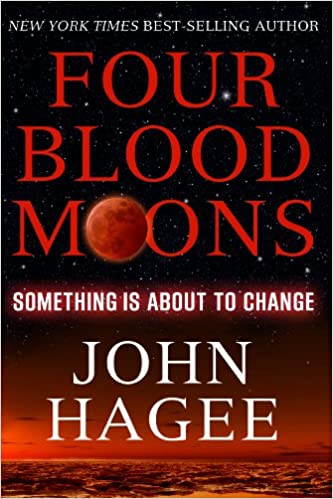 I don’t know why I read things like this. I knew when I reserved it at the library that I was just getting this nearly-decade-old book by fundamentalist nutjob pastor
I don’t know why I read things like this. I knew when I reserved it at the library that I was just getting this nearly-decade-old book by fundamentalist nutjob pastor 